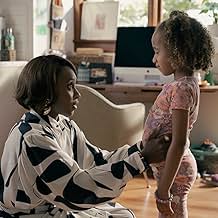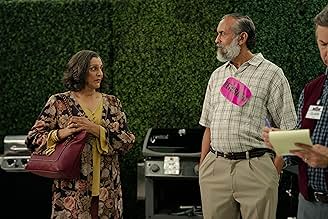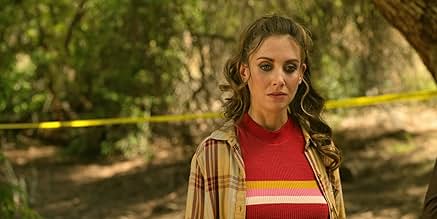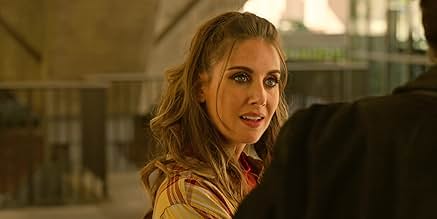You have to tune in just to see Nicole Kidman and Judy Davis going head-to-head, but there's a lot more to enjoy in this poignant yet whimsical anthology series from GLOW creators Liz Flahive and Carly Mensch.
The series is based on a collection of short stories by Irish writer Cecelia Ahern, and each of the eight half-hour episodes brings its own splash of magical realism or Black Mirror-style sci-fi as it illuminates a different facet of female experience. Common themes wend throughout, but the tone of each individual episode is different.
There's a layered melancholy to Kidman's and Davis's episode, The Woman Who Ate Photographs, which is made all the more resonant by the nostalgic ordinariness of its Australian setting. Kidman plays a woman nearing the end of her tether as she sets off in a moving van to bring her Alzheimer's-afflicted mother (Davis) to live with her and her husband and son (Simon Baker and Kai Lewins), who aren't giving her quite the support that she needs.
It's fun to see Kidman slapping the steering wheel while singing along to Midnight Oil and Dexys Midnight Runners, but Australian director Kim Gehrig, who has made music videos for Chaka Khan and Brittany Howard, among others, extracts a real ache from the NSW scenery, not least the rural brick veneer in which Davis' character has been rattling around on her own.
Davis, who was so devastatingly brilliant recently in Nitram (Stan), produces another emotionally piercing performance as a woman who is by turns hostile, vulnerable, disapprovingly distant, mischievous and scared. The gulf between mother and daughter yawns like the Burragorang Valley in what is a memorable little piece of work.
GLOW fans, meanwhile, will particularly enjoy other episodes involving Alison Brie as a ghost investigating her own murder, and Betty Gilpin as a woman whose husband keeps her, quite literally, on a shelf - at least until she busts out into an old-timey dance number, whirling through a thoroughly modern and thoroughly bemused Los Angeles.
Issa Rae (Insecure) delivers a particularly strong performance in what is paradoxically one of the series' weaker episodes, about a successful black writer feeling increasingly invisible to the white showbiz world that's courting her; and Merritt Wever is typically amazing as a woman whose dead-end dating life takes a strange turn when she meets a charming male-feminist duck.
Streaming services are glutted with anthology series, but we still needed this one. Truthful, validating and sometimes just plain magical.

![Watch Trailer Season 1 [OV]](https://m.media-amazon.com/images/M/MV5BMjdhZDI4NWEtMGY1OC00ZWI2LThkMWQtMjAwNjUwOTkyMWRmXkEyXkFqcGdeQXRyYW5zY29kZS13b3JrZmxvdw@@._V1_QL75_UX500_CR0)



































